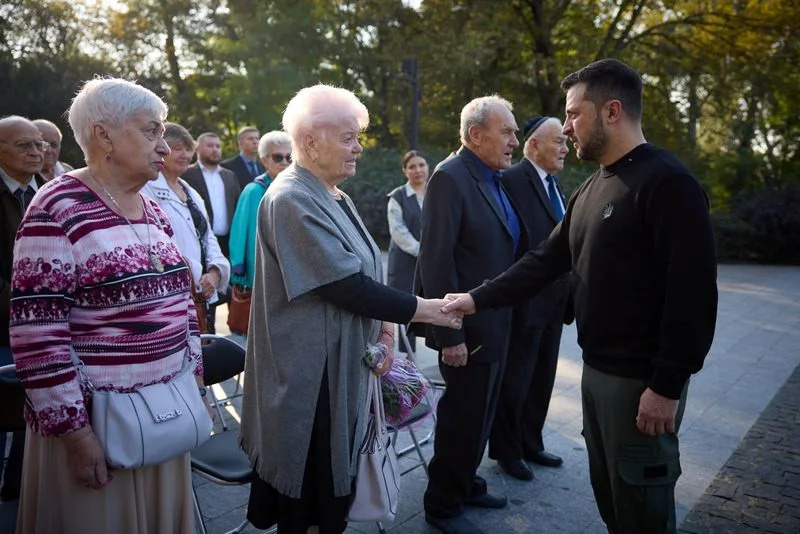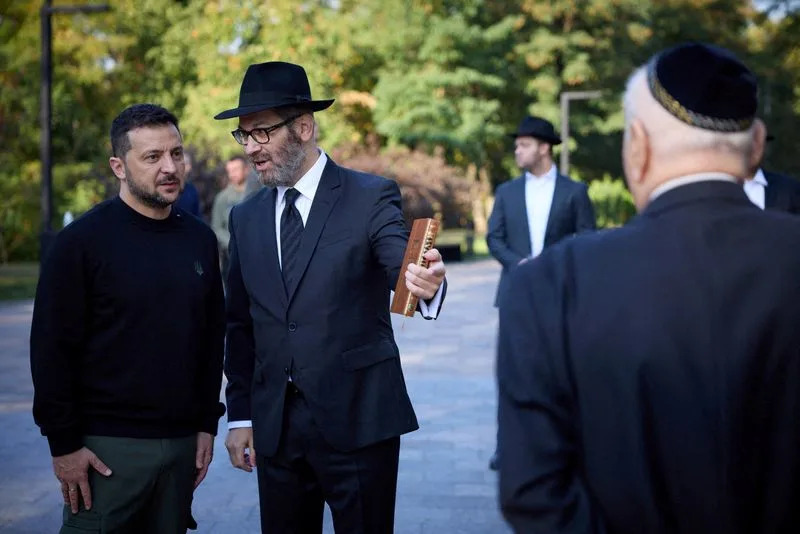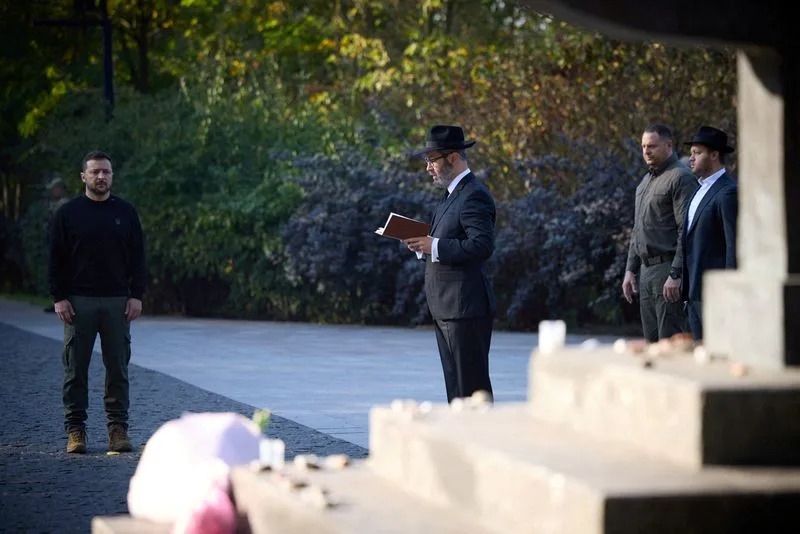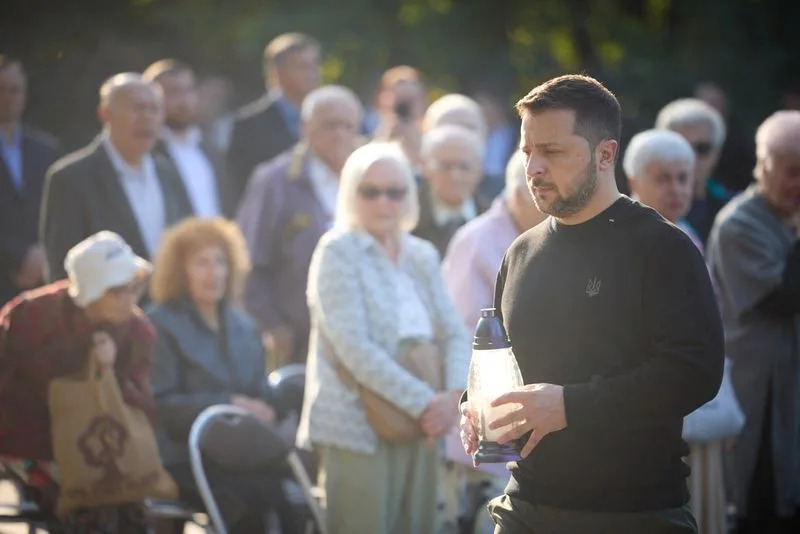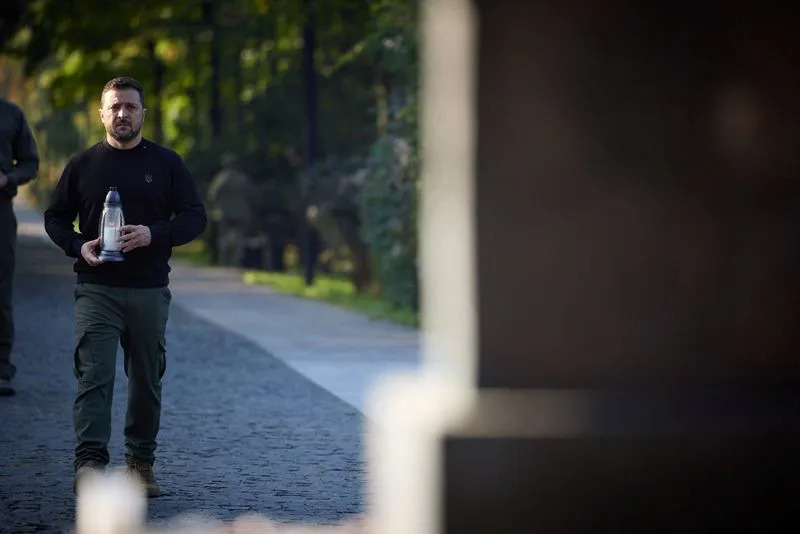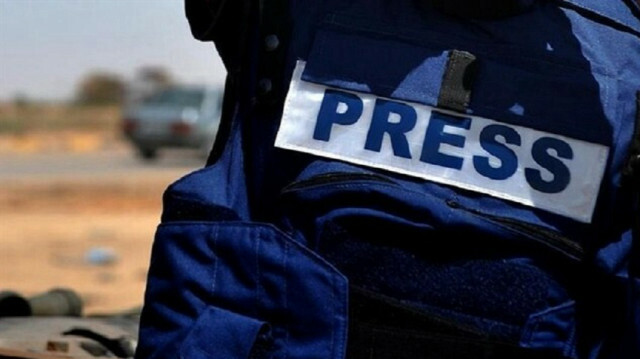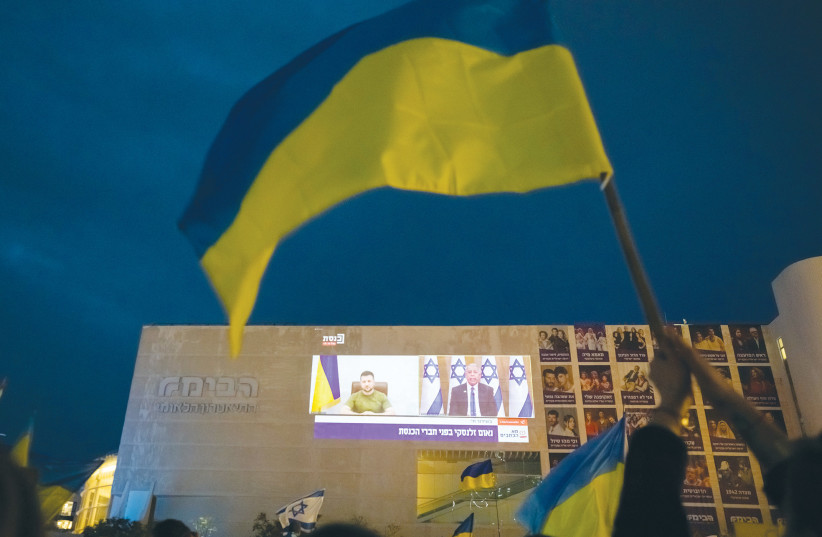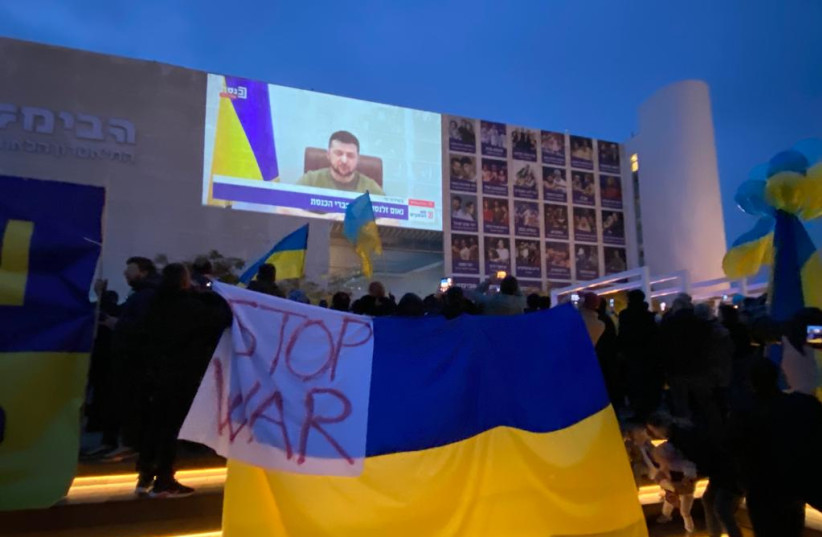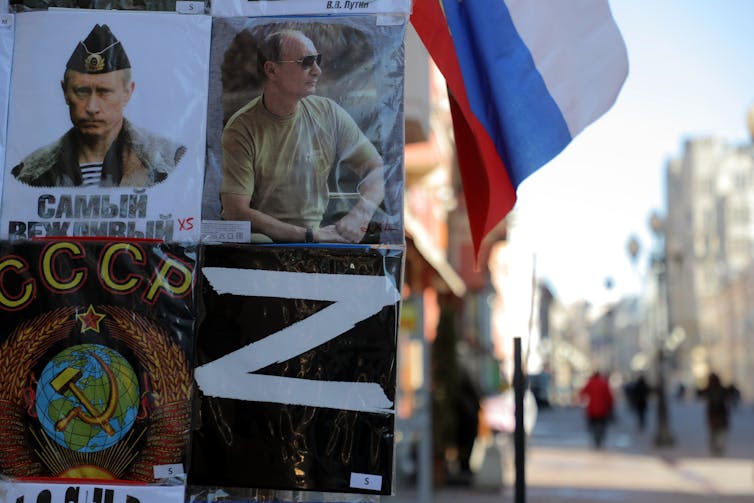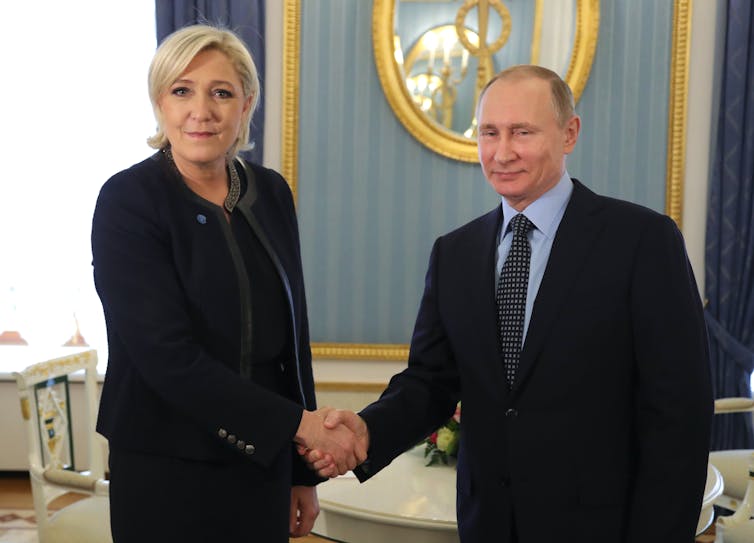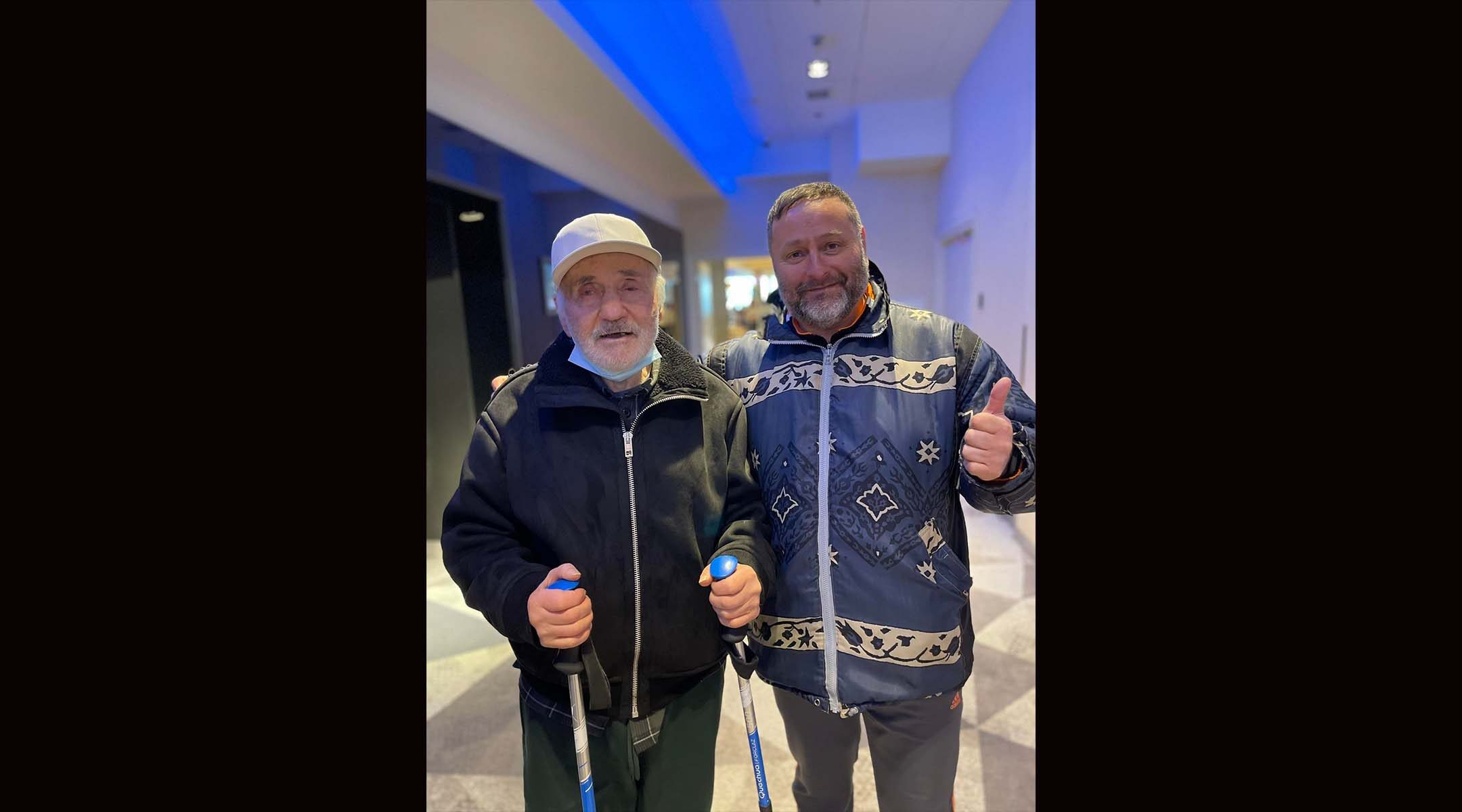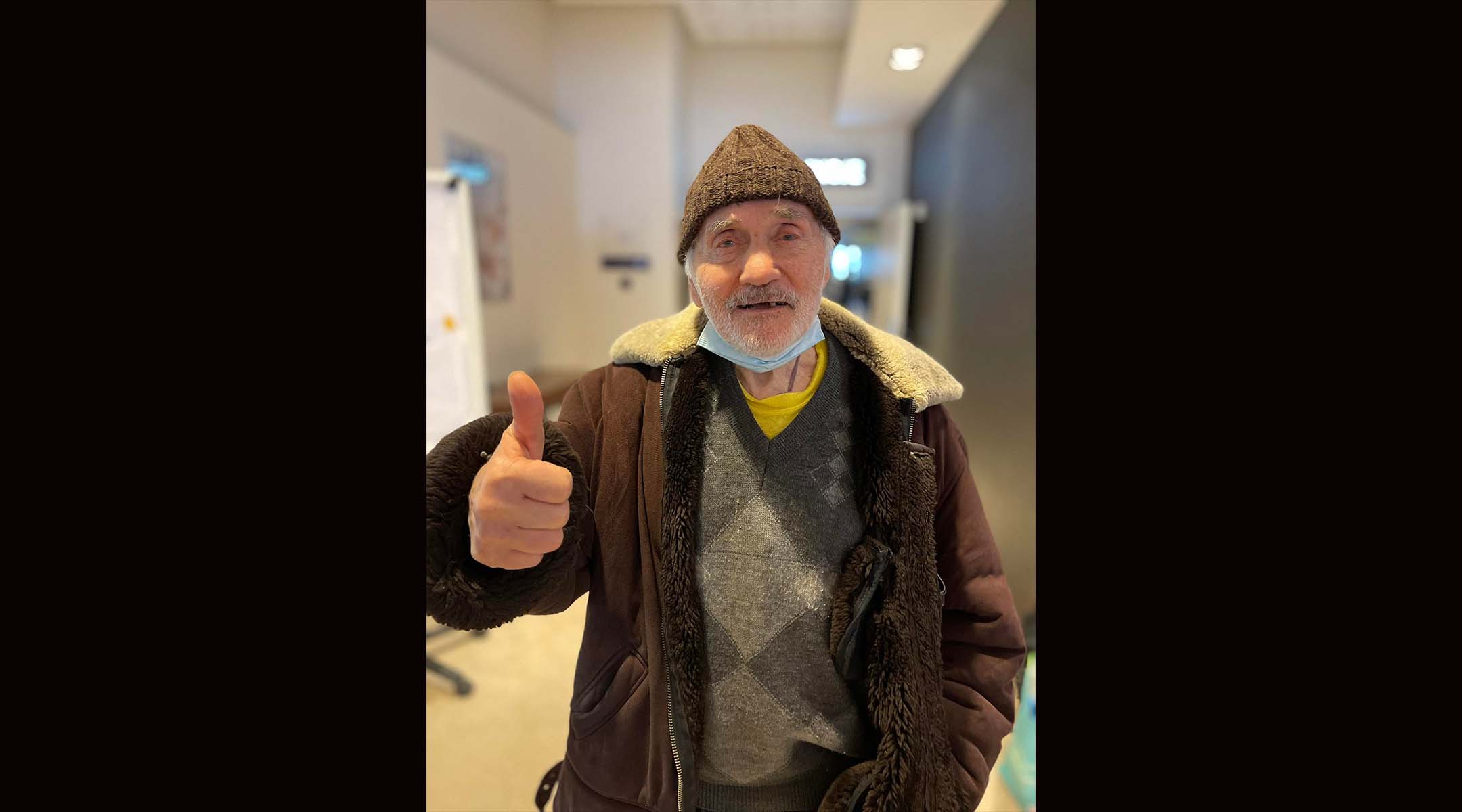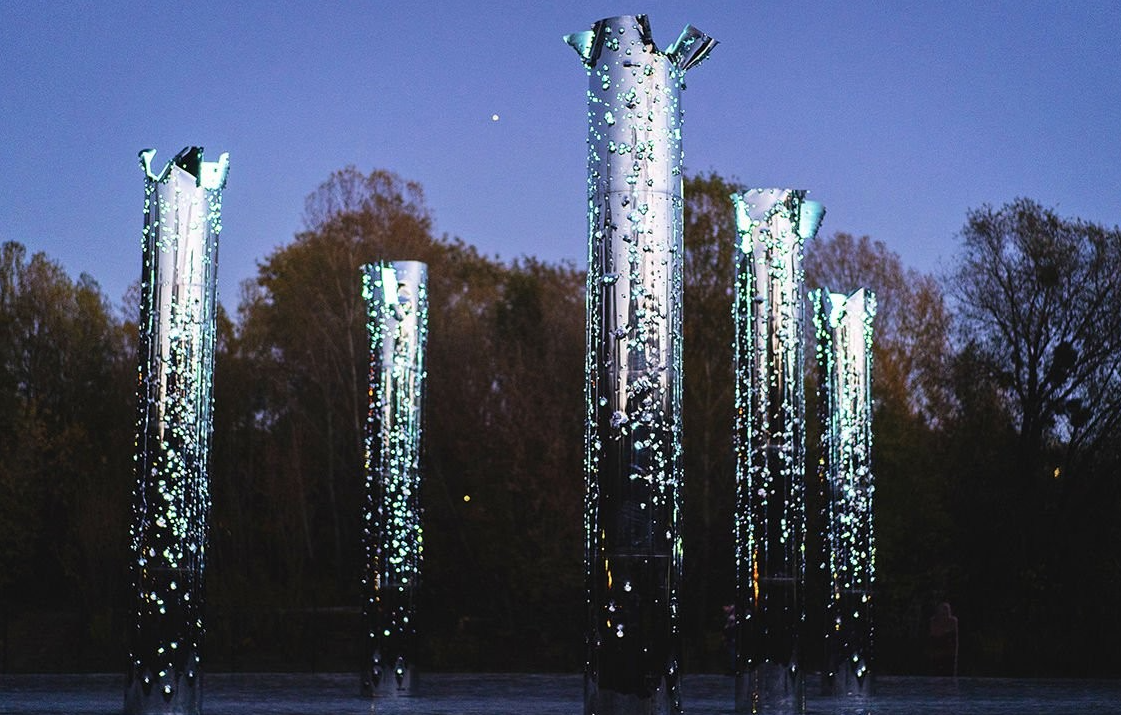
© Provided by The Canadian Press
Here is a full transcript of his speech, as translated into English from the original Ukrainian by a parliamentary interpreter:
"Ladies and gentlemen, Mr. Speaker, Prime Minister — dear Justin — members of the government, members of Parliament, all distinguished guests, friends, before I begin, I would like you to understand my feelings and the feelings of all Ukrainians, as far as it is possible, our feelings over the last 20 days — 20 days of the full-scale aggression (by the) Russian Federation after eight years of fighting in Donbass region.
"Can you only imagine? Imagine that at 4 a.m., each of you, you start hearing bomb explosions, severe explosions. Justin, can you imagine hearing — you, your children — hearing all these severe explosions? Bombing (the) airport, bombing the Ottawa airport, tens of other cities in your wonderful country? Can you imagine that?
"Cruise missiles are falling down on your territory and your children are asking you what is happening. You are receiving the first news (as to) which infrastructure objects have been bombed and destroyed by the Russian Federation and you know how many people already died. Can you only imagine? What words? How can you explain to your children that a full-scale aggression just happened in your country? You know that this is a war to annihilate your state, your country. You know that this is the war to subjugate your people.
"And on the second day you receive notifications that huge columns of military equipment are entering your country, crossing the border. They are entering small cities. They are (laying) siege, encircling cities and they start to shell civilian neighbourhoods. They bomb school buildings. They destroyed kindergarten facilities, like in our city, in the city of Sumy, like in the city of Okhtyrka. Imagine that someone is laying siege to Vancouver. Can you just imagine that for a second and all these people who are left in such a city? And this is exactly the situation that our city of Mariupol is suffering right now. They are left without heat or hydro, or without a means of communicating, almost without food, without water, seeking shelter in bomb shelters.
"Dear Justin, dear guests, can you imagine that every day you receive memorandums about the number of casualties, including women and children? You have heard about the bombings. Currently, we have 97 children that died during this war. Can you imagine if the famous CN Tower in Toronto was hit by Russian bombs?
"Of course, I don’t wish this on anyone, but this is our reality in which we live. We have to contemplate, we have to see where the next bombing takes place. In your church's square? We have a Freedom Square in the city of Kharkiv, our Babi Yar, the place where victims of the Holocaust were buried, and it has been bombed by the Russians.
"Imagine that Canadian facilities have been bombed similarly as our buildings and memorial places are being bombed. A number of families have died. Every night is a horrible night. The Russians are shelling from all kinds of artillery, from tanks. They are hitting civilian infrastructure. They hit big buildings.
"Can you imagine that there is a fire starting at a nuclear power plant and that is exactly what happened in our country. Each city that they are marching through, they are taking down the Ukrainian flags. Can you imagine someone taking down your Canadian flags in Montreal and other Canadian cities? I know that you all support Ukraine. We’ve been friends with you, Justin, but also I would like you to understand and I would like you to feel this, what we feel every day. We want to live and we want to be victorious. We want to prevail for the sake of life.
"Can you imagine when you call your friends, your friendly nations, and you ask ‘Please close the sky. Please close the airspace. Please stop the bombing? How many more cruise missiles have to fall on our cities until you make this happen?' And they, in return, express their deep concerns about the situation. When we talk with our partners they say ‘Please hold on. Hold on a little longer.’
"Some people are talking about trying to avoid escalation and at the same time in response to our aspiration to become members of NATO, we also do not hear a clear answer. Sometimes we don’t see obvious things. It is dire straits, but it also allowed us to see who our real friends are over the last 20 days and as well in the eight previous years.
"I am sure that you’ve been able to see clearly what is going on and I am addressing all of you. Canada has always been steadfast in their support. You have been a reliable partner to Ukraine and Ukrainians and I am sure this will continue. You have offered your help, your assistance, at our earliest request. You supply us with the military assistance, with humanitarian assistance. You imposed severe sanctions. At the same time, we see that unfortunately they did not bring the end to the war. You can see that our cities like Kharkiv, Mariupol and many other cities are not protected just like your cities are protected — Edmonton, Vancouver. You can see that Kyiv is being shelled and bombed.
"It used to be a very peaceful country, peaceful cities, but now they are being constantly bombarded. Basically, what I am trying to say is that you all need to do more to stop Russia, to protect Ukraine, and by doing that to protect Europe from Russian threats. They are destroying everything: memorial complexes, schools, hospitals, housing complexes. They already killed 97 Ukrainian children.
"We are not asking for much. We are asking for justice, for real support, which will help us to prevail to defend, to save lives, to save life all over the world. Canada is leading in these efforts and I am hoping that other countries will follow the same suit. We are asking for more of your leadership and please take a greater part in these efforts, Justin, and all of our friends of Ukraine. Old friends owe the truth. Please understand how important it is for us to close our airspace from Russian missiles and Russian aircraft. I hope you can understand. I hope you can increase your efforts, that you can increase sanctions so they will not have a single dollar to fund their war effort. Commercial entities should not be working in Russia.
"Probably you know better than many in any other countries that this attack on Ukraine is their attempt to annihilate the Ukrainian people, and there nothing else to it. This is their main objective. It’s actually a war against Ukrainian people, and it’s an attempt to destroy everything that we, as Ukrainians, do. It’s an attempt to destroy our future, to destroy our nation, our character.
"You Canadians, you know all this very well, and that is why I am asking you, please, do not stop your efforts. Please expand your efforts to bring back peace in our peaceful country. I believe and I know that you can do it. We are part of the antiwar coalition and, jointly, I am sure that it will achieve results.
"I would like to also ask our Ukrainian diaspora in Canada: This is a historical moment, and we need your support, your practical support. We hope that with your practical steps, you will show that you are more than part of Ukrainian history. Please remember, this is a practical, modern-day history of Ukraine. We want to live. We want to have peace.
"I am grateful to every one of you in the Parliament of Canada who is present there and to every Canadian citizen. I am very grateful to you, Justin. I am grateful to the Canadian people, and I am confident that, together, we will overcome and we will be victorious.
"Glory to Ukraine. Thank you to Canada."
This report by The Canadian Press was first published March 15, 2022.
The Canadian Press
As Ukrainian President Volodymyr Zelenskyy spoke to Parliament Tuesday morning, the National Post convened an expert panel to consider his words and his delivery: Dominique Arel, professor and chair of Ukrainian Studies at the University of Ottawa; Robert Danisch, professor in communication arts at the University of Waterloo who studies political rhetoric in democratic societies; Natalia Khanenko-Friesen, professor and chair of the Canadian Institute of Ukrainian Studies at the University of Alberta; and Ronald Beiner, professor emeritus of political science at the University of Toronto and author of Dangerous Minds: Nietzsche, Heidegger, and the Return of the Far Right. Zelenskyy’s words here were delivered in Ukrainian and are presented in English according to the Parliamentary translation.
ZELENSKYY: Before I begin, I would like you to understand my feelings, and the feelings of all Ukrainians as far as it is possible. Our feelings over the last 20 days, 20 days of full-scale aggression of Russian Federation after eight years of fighting in Donbas region. Can you only imagine? Imagine at 4 a.m., each of you, you start hearing bomb explosions, severe explosions. Justin, can you imagine hearing? You, your children hear all these severe explosions, bombing of airport, bombing of Ottawa Airport. Tens of other cities of your wonderful country. Can you imagine that?
DANISCH: In terms of a communication structure, he’s doing the classic, what we call in rhetoric, identification. He wants us to identify with Ukraine and share their emotional position. It’s a classic speechmaking strategy that’s been around for 2,000 years. It invites the audience to make an imaginative leap, and one function is to put the audience in the right frame of mind in order to persuade them.
AREL: He’s very good at that. He relates the human story. He was an actor before, but he’s not acting now, that’s why he’s so effective. He has the ability to speak from the heart and to the heart. Of course we can’t imagine that, but how could Ukrainians imagine that themselves just three or four weeks ago? The last time any city in Ukraine was bombed was 1944.
ZELENSKYY: Cruise missiles are falling down on your territory and your children are asking you what happened. And you are receiving the first news, which infrastructure objects have been bombed and destroyed by Russian Federation, and you know how many people already died. Can you only imagine what words, how you can explain to your children that full-scale aggression just happened in your country. You know that this is war to annihilate your state, your country. You know that this is the war to subjugate your people. And on the second day you receive notifications that huge columns of military equipment are entering your country, crossing the border. They’re entering small cities, they’re giving siege, they’re encircling cities and they start to shell civil neighbourhoods. They bomb school buildings. They destroyed kindergarten facilities. Like in our cities of Sumy, like in city of Okhtyrka. Imagine that someone is laying siege to Vancouver? Can you just imagine for a second, and all these people who are left in such cities. This is exactly the situation that our city of Mariupol is suffering right now, and they are left without heat or electricity or without means of communicating, almost without food, without water, seeking shelter in bomb shelters. Dear Justin, dear guests, can you imagine that every day you receive memorandums about the number of casualties, including women and children. You’ve heard about the bombings. Currently we have 97 children that died during this war. Can you imagine the famous CN Tower in Toronto, if it was hit by Russian bombs?
DANISCH: Zelenskyy’s speech to the British Parliament echoed and rephrased familiar lines from Churchill and Hamlet. It is saying he is kin with his fellow British world citizens. He didn’t do that with us. He did not quote literature. It’s funny, but it would have been more powerful in a certain way. He was generic in his reference to the CN Tower.
ZELENSKYY: Of course, I don’t wish this on anyone, but this is our reality in which we live. We have to contemplate, we have to see where the next bombing will take place. We have a Freedom Square in the city of Kharkiv. Our Babyn Yar, the place where victims of Holocaust were buried, it has been bombed by the Russians. Imagine that Canadian facilities have been bombed similarly as our buildings and memorial places are being bombed. A number of families have died. Every night is a horrible night. Russians are shelling from all kinds of artillery, from tanks. They’re hitting civilian infrastructure, they’re hitting buildings. Can you imagine that there is fire starting at a nuclear power plant, and that’s exactly what happened in our country. Each city that they are marching through, they’re taking down Ukrainian flags. Can you imagine someone taking down your Canadian flags in Montreal or other Canadian cities. I know that you will support Ukraine. We’ve been friends with you Justin, but also I would like you to understand, and I would like you to feel this, what we feel everyday.
DANISCH: I’m worried that there’s a bit of Instagrammable fame to this moment for him. He’s media savvy. It helps him gain attention, but often on Instagram and TikTok, they’re quick burns. You get a lot of attention quickly, and then it dissipates. If he wants us to not forget about him, he has to amplify the stakes, and I’m not seeing it that way. I’m seeing the Instagrammable qualities.
ZELENSKYY: We want to live and we want to be victorious. We want to prevail for the sake of life. Can you imagine when you call your friends, your friendly nation, and you ask, “Please close the sky, close the airspace, please stop the bombing, how many more cruise missiles have to fall on our cities until you make this happen?” And in return they express their deep concern about the situation. When we talk with our partners, they say please hold on hold on a little longer. Some people are talking about trying to avoid escalation, at the same time in response to our aspiration to become members of NATO, we also do not hear a clear answer.
BEINER: It’s not clear that a speech, however powerful, will induce NATO to get more enmeshed in this conflict than it already is. But one hopes that at least a way can be found to put the Polish MiGs at the disposal of Ukrainian pilots, so Ukraine can do the work itself of closing Ukrainian airspace to Russian attacks. This is not something that Canada can do, but perhaps it can at least urge the U.S. to find a solution.
ZELENSKYY: Sometimes we don’t see obvious things. It’s dire straits, but it also allowed us to see who our real friends are over the last 20 days, and as well eight previous years.
BEINER: What does full friendship require in this situation? More than Ukraine is currently getting from Canada and other allies. Sanctions have not stopped the war, nor will they stop innocent Ukrainians from dying.
ZELENSKYY: I am sure that you’ve been able to see clearly what’s going on, and I’m addressing all of you. Canada has always been steadfast in their support. You’ve been a reliable partner to Ukraine and Ukrainians, and I’m sure this will continue. You’ve offered your help, you assistance at our earliest request. You supply us with military assistance, with humanitarian assistance, you imposed severe sanctions, serious sanctions. At the same time we see that unfortunately this did not bring the end to the war. You can see that our cities like Kharkiv, like Mariupol, are not protected just like your cities are protected, Edmonton, Vancouver. You can see that Kyiv is being shelled and bombed. It used to be we were a very peaceful country, peaceful cities, but not they’re being constantly bombarded. Basically what I’m trying to say that we all need to do, you all need to do more to stop Russia, to protect Ukraine, and by doing that to protect Europe from Russian threat. They are destroying everything. Memorial complexes, schools, hospitals, housing complex. They already killed 97 Ukrainian children. We are not asking too much. We are asking for justice, for real support which will help us to prevail, to defend, to save life all of the world.
DANISCH: He was trying to be gently critical because he wants more from us. The identification was meant to soften that criticism, make us more receptive to the criticism. I got the sense that he was exhausted by that labour of gently critiquing governments. He knows he has to perform the identification first so the criticism doesn’t push us away, but the strategy is not working. He is not getting the no-fly zone. The criticism may have to be stronger to get us to listen.
ZELENSKYY: Canada is leading in these efforts, and I am hoping that other countries will follow suit. We are asking for more of your leadership, and please take more, greater part in these efforts, Justin and all of our friends of Ukraine, all friends of the truth. Please understand how important it is for us to close our airspace from Russian missiles and Russian aircraft. I hope you can understand.
BEINER: Alas, he’s asking for something that Canada and other NATO members won’t dare do, as Zelenskyy knows.
AREL: Just a month ago, the position of Canada was that we would not send lethal weapons. Why? For fear to escalate. And then of course now we’re sending massive amounts of weapons. What is unimaginable now may not be unimaginable a month from now, so Zelenskyy will keep asking.
ZELENSKYY: I hope you can increase your efforts, you can increase sanctions so they do not have a single dollar to fund their war effort. Commercial entities should not be working in Russia. Probably you know better than many other countries that this attack on Ukraine it’s their attempt to annihilate Ukrainian people, and there’s nothing else to it. This is their main objective. It’s actually the war against Ukrainian people, and it’s an attempt to destroy everything that we as Ukrainians do. It’s an attempt to destroy our future, to destroy our nation, our character. You, Canadians, you know very well all this. That’s why I’m asking you please do not stop in your efforts. Please expand your efforts to bring back peace in our peaceful country. I believe, and I know that you can do it. We are part of the anti-war coalition, and jointly I’m sure that will achieve results. I would like to also ask our Ukrainian diaspora in Canada. This is a historical moment and we need your support, your practical support. We hope that with your practical steps you will show that you are part of more than Ukrainian history. Please remember, this is a practical modern day history of Ukraine. We want to live, we want to have peace. I am grateful to everyone of you in the Parliament of Canada who is present there, to every Canadian citizen. I am very grateful to you, Justin. I am grateful to Canadian people, and I am confident that together we will overcome and will be victorious. Glory to Ukraine. Thank you to Canada.
DANISCH: I thought what was more notable was what he didn’t do. He did not tell us why democracy matters, or why it’s good. He opted out of that, which to me was kind of a mistake. He didn’t paint it as a conflict between democracy and fascism, and that was a miss.
AREL: The war’s goal is to overthrow government. It is eminently anti-democratic. Russia has been good at confusing the narrative internationally. Domestically they extinguish free media. Propaganda is built on denying the reality of the war that they won’t call a war. When Zelenskyy is saluting “friends of truth,” I think he’s getting at that. This is the real truth. we’re fighting for freedom, for statehood, and what we say is real.
